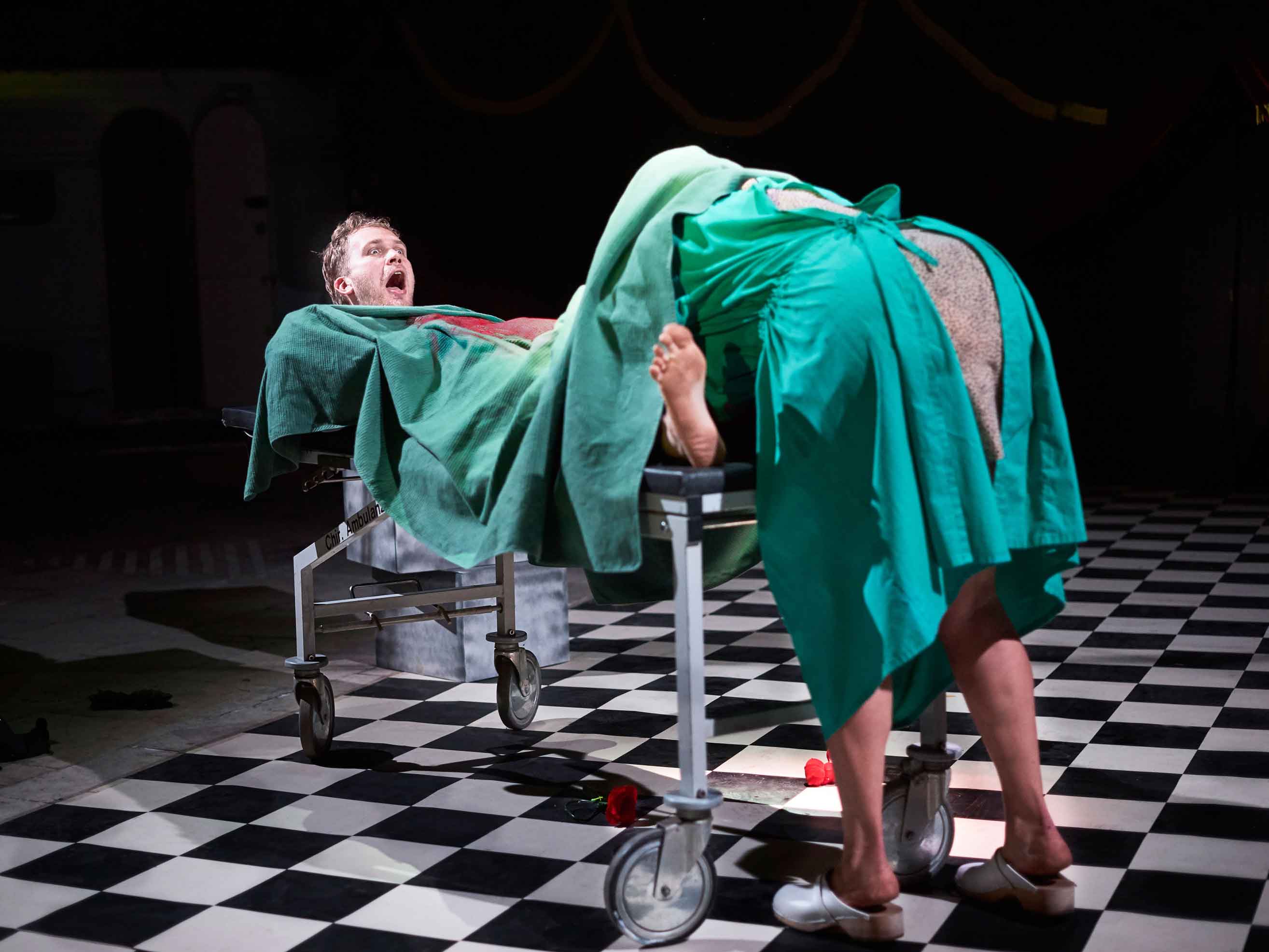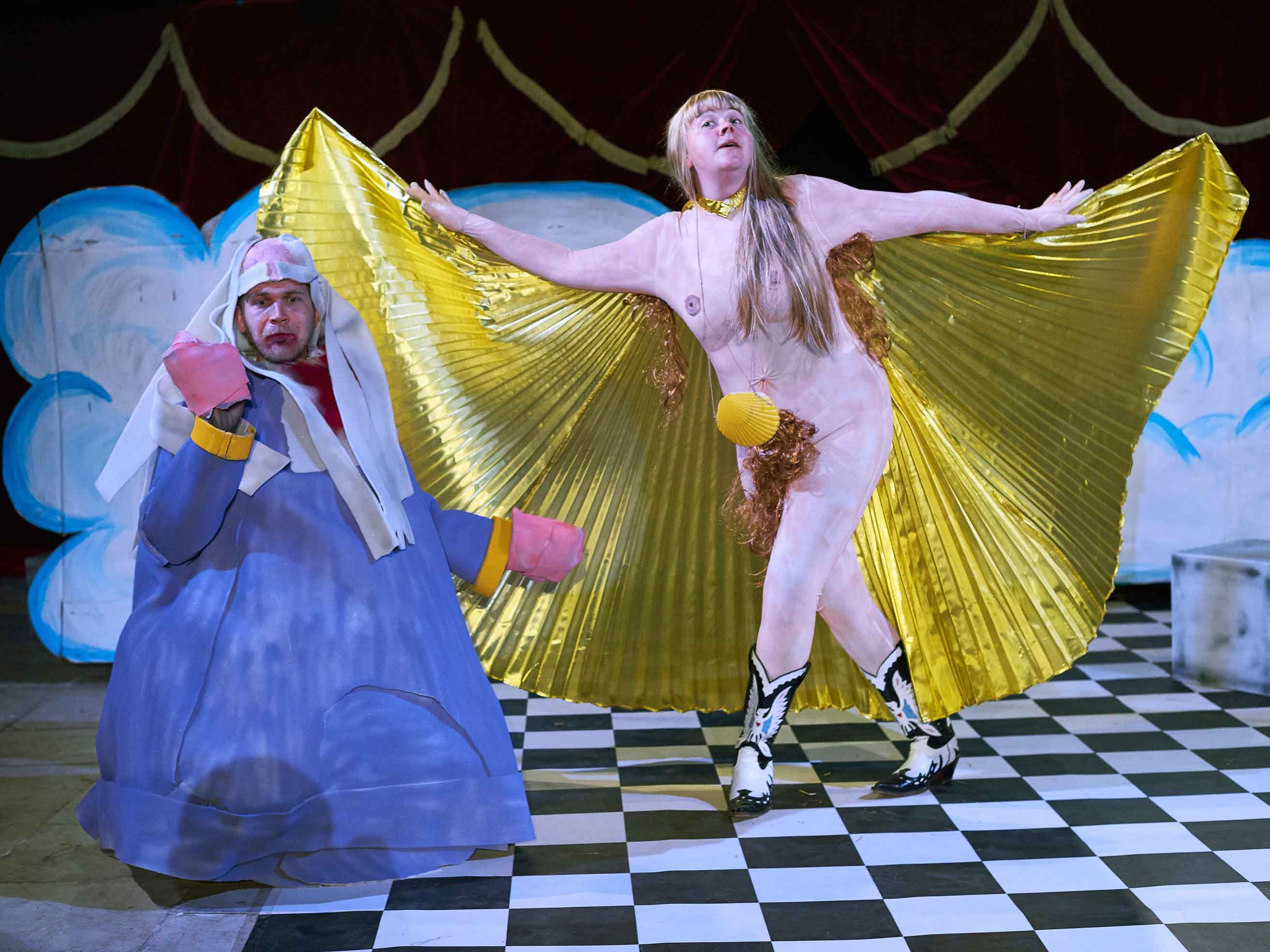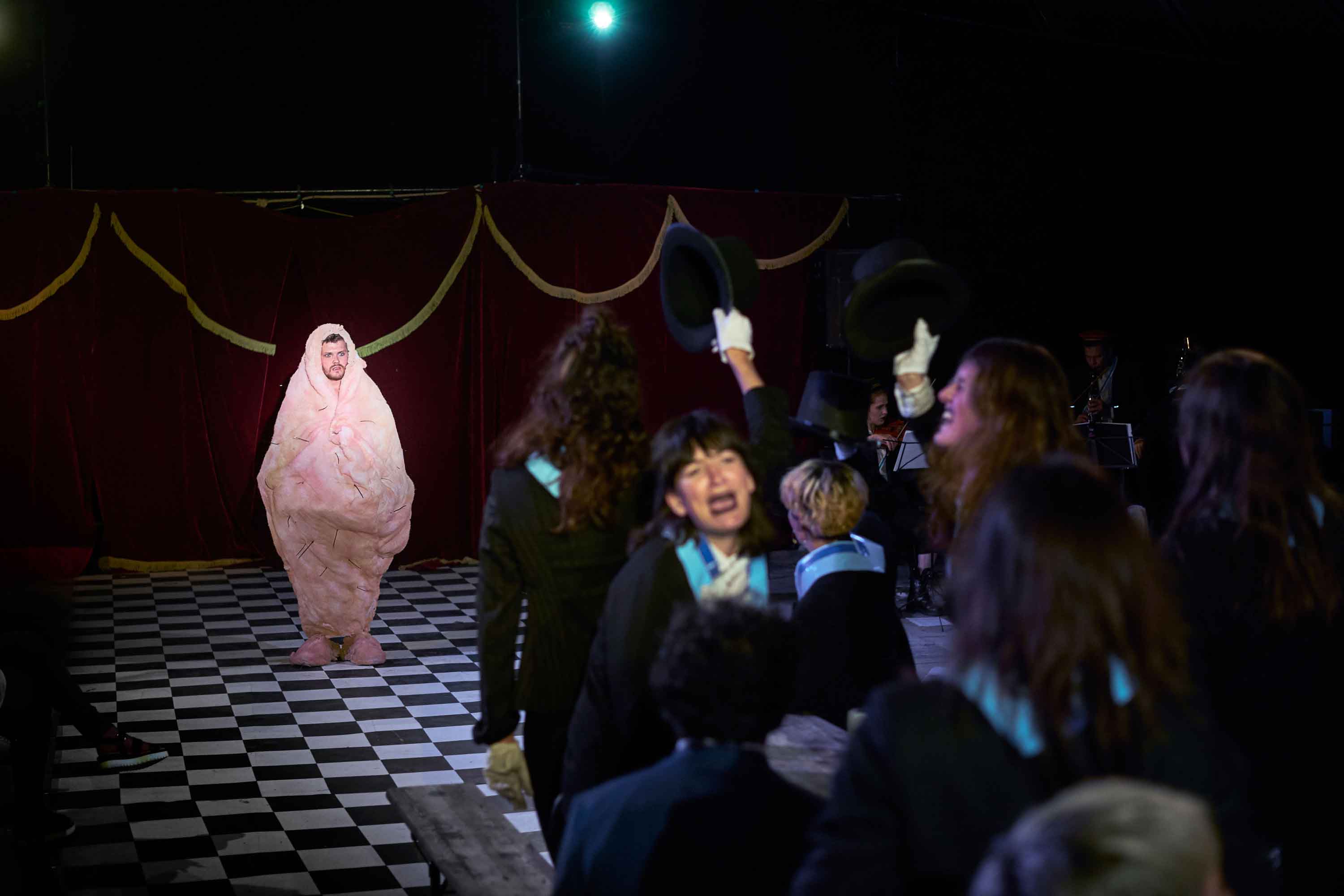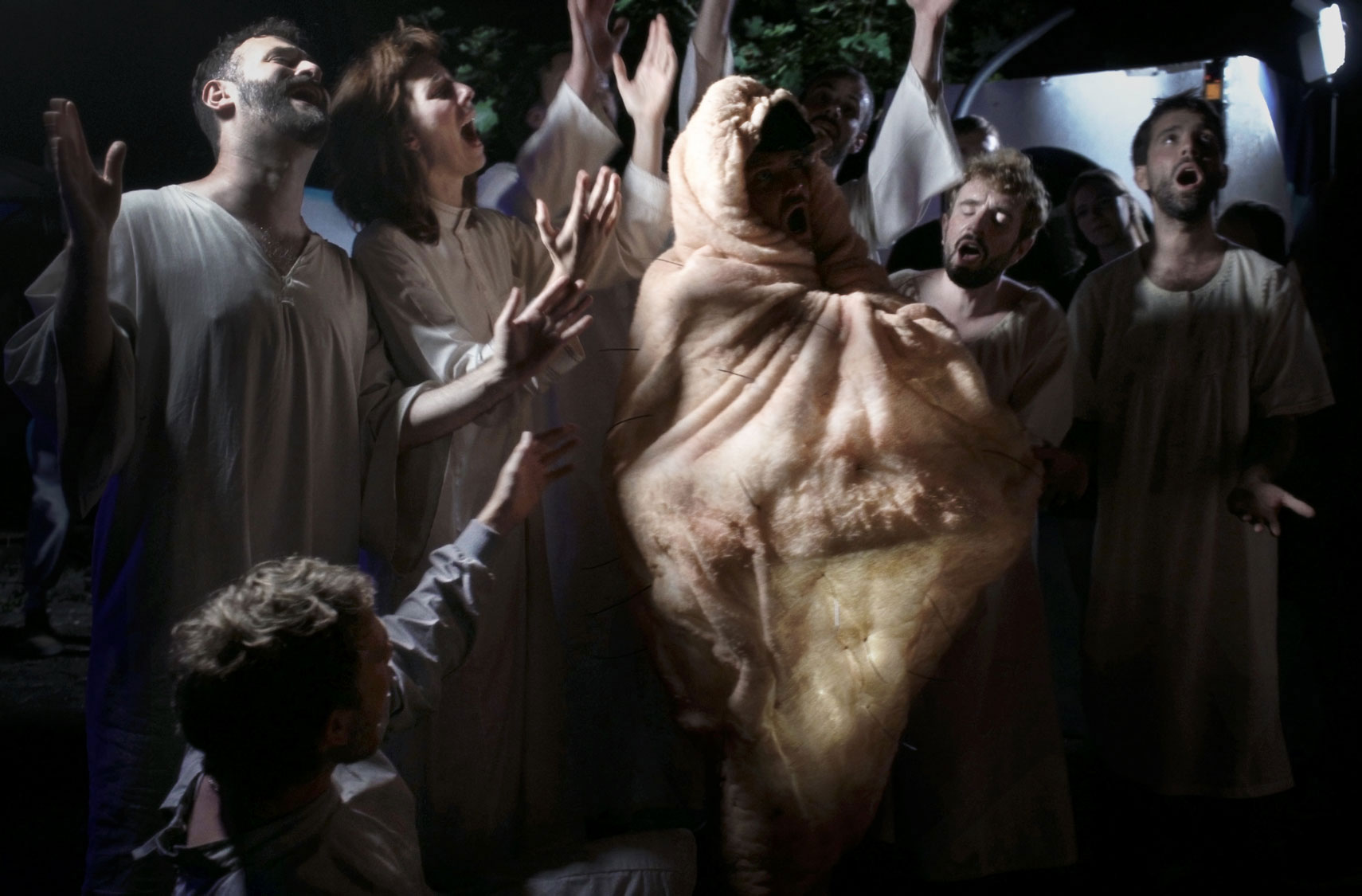Magna Mater
Oper*etta. Apocalypse.
TIMEFRAME: since 2021
Imagine a world ruled by women for centuries: every war, scientific breakthrough, speech, and piece of music created by women. What would that world look like? The Berlin contemporary oper*etta collective tutti d*amore transforms the timeless laws of male dominance into an extreme matriarchy, making it the starting point for the dramatic Magna Mater this summer.
Two ancient stories about women, originally penned by men—the operettas Die schöne Galathée by Franz von Suppe and Lysistrata by Paul Lincke—serve as the foundation. tuttid*amore turns the tables and retells these narratives from a female perspective. In Magna Mater, the audience, staged as separate camps, experiences a systematic journey through privilege, oppression, violence, and sexism. The divides deepen. Is there any hope for compromise? Perhaps only an apocalypse can save us from ourselves.
With Magna Mater, tuttid*amore dedicates an evening to this question under the big top of the Zirkus Mond Berlin, inviting the audience to join an apocalyptic-Dionysian celebration.
DURATION: 2h 30min
SOPRANO
SOPRANO
MEZZO-SOPRANO
TENOR
TENOR
SOUND DESIGN
DIRECTION & CONCEPT
SET & COSTUME
DRAMATURGY & TEXT ADAPTATION
ASSISTANT DIRECTOR
SET/COSTUME ASSISTANT
TECHNICAL SOUND
LIGHTING
CONCERTMASTER
VIOLIN
CELLO
DOUBLE BASS
FLUTE
CLARINET
HORN
PERCUSSION
MUSICAL DIRECTION & ARRANGEMENT
ACCOMPANIST
CHOIR
CHOIR DIRECTOR
PRODUCTION
PRODUCTION ASSISTANT
PR & COMMUNICATIONS
VENUE
Funded by the Fonds Darstellende Künste, supported by the Federal Government Commissioner for Culture and the Media under NEUSTART KULTUR, and by the Pankow District Office Berlin, Department for Education and Culture. In cooperation with Heart Chor Berlin, Oh My Choir, and Kostümkollektiv & Theaterhaus Mitte. Media partnership with taz - die tageszeitung.



“[T]he troupe stays true to its credo by giving aging musical theater a vigorous rejuvenation.”
– Heiko Schon, Kultura Extra
“This production [...] is a revelation. [...] the young audience around me had absolutely no problem enjoying the old-fashioned Suppé and Lincke music. They embraced it, because it was presented as 'play' and 'fun,' with a message and raw energy you’d never find in a traditional theater or concert hall. Here, a new generation has taken over. [...] There is a future for operetta, and operetta can merge with everything, no matter how absurd or weird, as long as it remains entertaining.”
– Dr. Kevin Clarke, Operetta Research Centre


© Matthias Pfänder
“[...] an evening that thinks and leads so intelligently in curves that, when the dizziness subsides, thoughts are clearer than before. As delightfully sweet as the operetta melodies swirl, so fierce is the anger of those in power here. [...] Can a genre as old as operetta do anything against societal division? [...] This evening certainly proved that the arts can reflect simplistic divides in black and white intelligently to provoke deeper reflection.”
– Konstantin Parnian, Neue Musikzeitung

© Cornelius Reitmayr